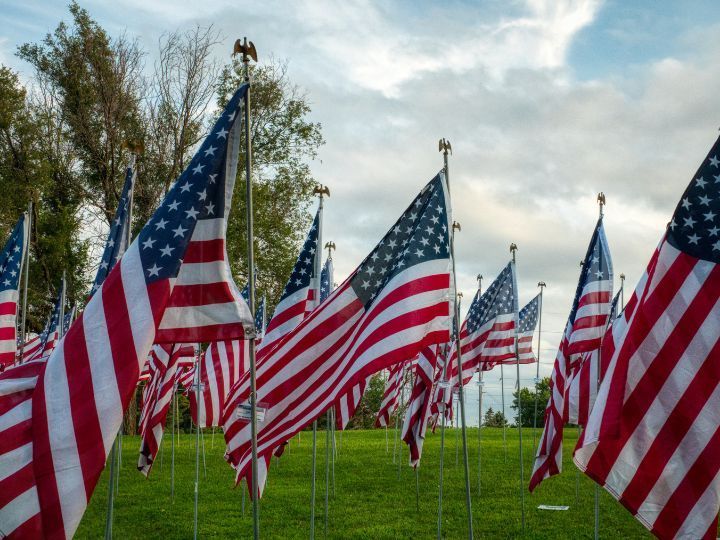Understanding Alabama Funeral Laws: What Families Need to Know

When facing the loss of a loved one, understanding Alabama funeral laws can provide clarity and guidance during an emotionally challenging time. This is a difficult time and funeral decisions can be overwhelming. We know that losing a loved one or preparing for the loss of a loved one can be very difficult. That's why we are here to take the burden off of your shoulders and help you begin the healing process.
Funeral choices can be confusing, and Alabama's specific laws and regulations add another layer of complexity. We'll help you understand your options so that you don't have to figure it out alone. We will help you make the choices that are right for your family. No obligation. No pressure. Having served the Tallassee community and surrounding areas since 1969, we understand the importance of providing clear, accurate information about Alabama's funeral laws to help families make informed decisions during their time of need.
Alabama Death Registration Requirements
Mandatory Death Certificate Filing
Alabama law requires specific procedures for registering deaths and handling deceased individuals, all designed to protect public health and ensure proper documentation.
Key Requirements:
- Death must be registered within 5 days of death
- Death certificate must be filed with the local office of vital statistics
- A medical professional must complete the medical certification section within 48 hours
- No burial or cremation can occur until the death certificate is properly filed
Who Files the Death Certificate: Typically, the funeral home, mortuary, cremation organization, or other person in charge of the deceased person's remains will prepare and file the death certificate. This is one of the many ways professional funeral directors help families navigate legal requirements during difficult times.
Obtaining Certified Copies
You'll need multiple certified copies of the death certificate for various legal and financial purposes.
Who Can Apply for Certified Copies:
- Spouse, parent, child, or sibling of the deceased
- Grandchild (when needed to demonstrate property entitlement)
- Legal representative of the family or estate
- Person with a legitimate interest
Costs for Certified Copies:
- First certified copy: $15
- Additional copies: $6 each
- Extra fees apply for online ordering
Why You Need Multiple Copies:
- Life insurance claims
- Social Security benefits
- Banking and financial institutions
- Property transfers
- Veterans benefits
- Employer benefit claims
Disposition Requirements and Timeline
Legal Timeline for Body Disposition
Alabama law establishes specific timeframes for handling deceased individuals to protect public health and safety.
48-Hour Rule: Disposition of human remains must occur within 48 hours after the time of death or the time the body is released by the coroner or medical examiner, unless:
- The body has been embalmed by a licensed embalmer
- The body is kept under refrigeration
- Special permission is granted from the authorizing agent
Transportation Regulations
Alabama has specific laws governing the transportation of deceased individuals both within and outside the state.
Within Alabama:
- Local transportation requires proper permits
- Burial-transit permit needed to transport body to disposition location
- Funeral directors typically handle these permits as part of their services
Out-of-State Transportation: Alabama Code states: "It shall be unlawful for any person, firm or corporation to take, carry, transport or remove from within the confines of this state any dead human body unless said body has been embalmed or cremated."
This law requires either embalming or cremation before transporting remains outside Alabama, which affects families who need to transport loved ones to other states for burial.
Burial Laws and Regulations
Cemetery Burial Requirements
Alabama regulates burial practices to ensure public health and proper record-keeping.
Cemetery Burial Rules:
- Must obtain burial permit from local registrar
- Cemetery must be properly established and maintained
- Burial vault or grave liner may be required by individual cemeteries
- Cemetery regulations may dictate monument and marker specifications
Home Burial Provisions
Alabama allows home burial under specific conditions, providing families with alternative options for laying their loved ones to rest.
Home Burial Requirements:
- No state laws prohibit home burial
- Must check local zoning rules before proceeding
- Must obtain burial permit from local registrar
- More likely permitted in rural areas
- Local health department inspection may be required
Important Considerations:
- Property ownership implications for future sales
- Potential need to relocate remains if zoning changes
- Responsibility for perpetual care of burial site
- Impact on property values and usage
Private Family Cemeteries
Families can establish private cemeteries on their property under Alabama law.
Legal Requirements:
- Compliance with local zoning regulations
- Proper documentation of cemetery establishment
- Ongoing maintenance responsibilities
- Legal obligations if property ownership changes
Cremation Laws and Procedures
Cremation Authorization Requirements
Alabama law requires specific authorizations before cremation can proceed.
Required Documentation:
- Proper death certificate completion and filing
- Cremation authorization form signed by next of kin or authorized agent
- Medical examiner or coroner approval (when required)
- Permits obtained by funeral director
Who Can Authorize Cremation:
- Legal next of kin in order of priority
- Person designated by the deceased in writing
- Court-appointed representative
- Public administrator (in cases of indigent deaths)
Cremation Process Regulations
Alabama defines cremation as "the technical irreversible process, using heat, flames, or chemical agents, that reduces human remains to bone fragments" and includes processing and possible pulverization of bone fragments.
Regulatory Requirements:
- Crematories must be registered with Alabama Board of Funeral Service
- Strict safety and operational standards
- Proper identification procedures throughout process
- Environmental compliance standards
Alternative Cremation Methods
Alabama law recognizes alternative methods of reducing human remains.
Water Cremation (Alkaline Hydrolysis): Also called "aquamation," this process is legal in Alabama and uses chemical processes rather than flame to reduce remains. It's considered more environmentally friendly but typically costs more than traditional cremation.
Scattering and Disposition of Cremated Remains
Alabama Scattering Laws
Alabama provides considerable freedom regarding the disposition of cremated remains.
Scattering Options:
- No state laws governing where ashes may be kept or scattered
- Private property scattering allowed with landowner permission
- Public land scattering should have local official permission
- Federal regulations apply for scattering at sea
Water Scattering Regulations
Ocean/Gulf Coast Scattering:
- Must be at least 3 nautical miles from shore
- Written notification to EPA required within 30 days
- Contact: EPA Region 4, Atlanta, GA
Rivers and Lakes:
- State permit required for scattering in inland waterways
- Local environmental regulations may apply
- Consider impact on public water supplies
Embalming Requirements and Regulations
When Embalming Is Required
Alabama law does not mandate embalming in most circumstances, giving families choices in body preparation.
Embalming May Be Required When:
- Body will be transported out of state
- Extended time before burial or cremation
- Public health concerns exist
- Viewing or visitation is planned (funeral home policy)
Embalming Alternatives:
- Refrigeration for temporary preservation
- Dry ice for short-term cooling
- Immediate disposition within legal timeframes
Consumer Rights Regarding Embalming
Federal law protects consumers' rights to choose whether embalming is performed.
Your Rights Include:
- Right to decline embalming in most cases
- Right to choose refrigeration instead
- Right to be informed of embalming costs
- Right to understand when embalming might be required
Professional Funeral Service Requirements
Licensed Funeral Director Requirements
Alabama law requires licensed professionals to handle certain aspects of death care.
Services Requiring Licensed Funeral Director:
- Filing death certificates
- Obtaining burial and transportation permits
- Arranging cremation procedures
- Embalming services
- Professional consultation and coordination
Benefits of Professional Services:
- Legal compliance assurance
- Coordination of multiple requirements
- Experience with complex regulations
- Support during emotional decision-making
Consumer Protection Laws
Alabama provides various protections for funeral service consumers.
Federal Trade Commission Funeral Rule:
- Right to itemized price lists
- Right to purchase only desired services
- Right to use third-party merchandise
- Right to transparent pricing information
Alabama-Specific Protections:
- Licensed professional requirements
- Board of Funeral Service oversight
- Complaint and disciplinary procedures
- Preneed contract regulations
Preneed Funeral Planning Laws
Preneed Contract Regulations
Alabama regulates preneed funeral contracts to protect consumers who pay in advance.
Legal Requirements:
- Contracts must be with licensed funeral establishments
- Funds must be properly held in trust or insurance
- Specific contract terms required by law
- Consumer rights clearly outlined
Benefits of Preneed Planning:
- Price protection from inflation
- Ensures personal wishes are documented
- Reduces family decision burden
- Payment plan options available
Trust and Insurance Requirements
Preneed Funding Options:
- Trust accounts with financial institutions
- Preneed insurance policies
- Combination funding approaches
- Transferability provisions for relocation
Special Circumstances and Considerations
Veteran Benefits and Military Honors
Alabama recognizes special provisions for military veterans.
Available Benefits:
- Military funeral honors
- Burial in veterans cemeteries
- Financial assistance for burial costs
- Special markers and monuments
Indigent Death Procedures
Alabama law provides for the dignified disposition of individuals without financial resources.
Public Assistance:
- County responsibility for indigent deaths
- Social Security death benefit ($255 if qualifying)
- State-regulated pauper burial or cremation procedures
Medical Examiner and Coroner Cases
Certain deaths require additional legal procedures.
When Medical Examiner Involvement Required:
- Sudden or unexpected deaths
- Deaths under suspicious circumstances
- Deaths without medical attendance
- Deaths in accidents or from injuries
Impact on Families:
- Potential delays in disposition
- Autopsy procedures may be required
- Additional documentation needed
- Extended timeline for funeral planning
Home Funeral and Family-Directed Options
Legal Framework for Home Funerals
Alabama allows families to take active roles in caring for their deceased loved ones.
What Families Can Do:
- Care for body at home before disposition
- Hold services at home or chosen locations
- Transport deceased (within legal requirements)
- Make funeral arrangements with professional assistance
Professional Support Still Needed:
- Death certificate filing
- Permit acquisition
- Legal compliance verification
- Cremation coordination
Practical Considerations
Steps for Family-Directed Funerals:
- Contact funeral professional for required services
- Understand local zoning and health regulations
- Plan for body preservation (refrigeration, dry ice)
- Coordinate timing with legal requirements
- Arrange for final disposition (burial or cremation)
Practical Guidance for Families
Immediate Steps When Death Occurs
Understanding what to do immediately after death occurs helps ensure compliance with Alabama law.
First Steps:
- Contact medical professional to pronounce death
- Contact funeral home or cremation provider
- Gather necessary personal documents
- Begin death certificate process
- Consider immediate body care needs
Working with Funeral Professionals
Professional funeral directors provide invaluable assistance with legal compliance.
How Professionals Help:
- Navigate complex legal requirements
- File necessary paperwork promptly
- Coordinate with government agencies
- Ensure timeline compliance
- Provide guidance on available options
Resources and Support
Understanding Alabama funeral laws helps families make informed decisions while ensuring full legal compliance. Every life is unique, and every service should be as well. We invite you to learn more about our services and how we can help you honor your loved one while meeting all legal requirements.
At Jeffcoat Funeral Home, we have proudly served the Tallassee community since 1969 with compassionate care and personalized service. Our staff guarantees we will carry out arrangements just as you directed, ensuring full compliance with Alabama laws while honoring your family's wishes.
Whether you need immediate assistance with funeral arrangements or are considering preneed planning, our experienced team understands Alabama's funeral laws and regulations. We provide comprehensive support to help families navigate legal requirements while creating meaningful tributes to their loved ones.
If you are unsure of the next steps or need assistance making funeral service decisions, please give us a call. We know that losing a loved one can be overwhelming, and we're here to help you understand your options and make choices that are right for your family - all while ensuring complete compliance with Alabama's funeral laws and regulations.
Moving Forward with Confidence and Legal Compliance
Understanding Alabama funeral laws empowers families to make informed decisions while ensuring all legal requirements are met. These laws exist to protect public health, ensure proper documentation, and provide consumer protections during vulnerable times.
While Alabama's funeral laws may seem complex, working with experienced professionals ensures that all legal requirements are met while allowing families to focus on honoring their loved ones and beginning the healing process. Grief is a journey that is not meant to be traveled alone, and having knowledgeable guidance through legal requirements is an important part of that support.
Remember that Alabama's funeral laws provide a framework for dignified, legal disposition of human remains while offering families various options for honoring their loved ones. Whether choosing traditional burial, cremation, or alternative approaches, understanding these laws helps ensure that your choices are both meaningful and legally compliant.
The information provided here serves as a guide, but individual circumstances may require specific legal guidance. Professional funeral directors are trained in current Alabama law and can provide personalized assistance to ensure that all legal requirements are met while respecting your family's wishes and honoring your loved one's memory.








